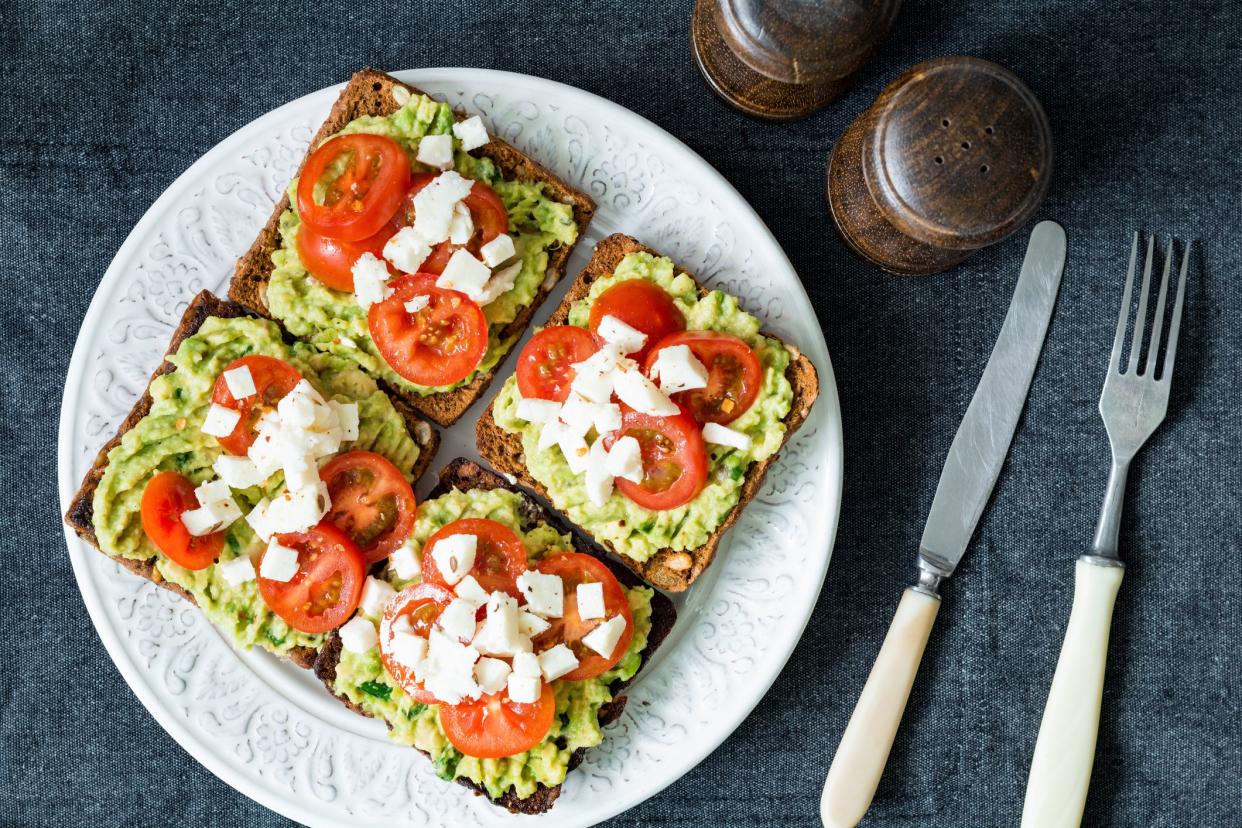What’s the Best Weight Loss Diet Plan for Men? Weighing the Pros & Cons of 6 Different Plans

What’s the Best Weight Loss Diet Plan for Men? Weighing the Pros & Cons of 6 Different Plans
If you came here hoping for a black-and-white answer about what healthy diet plan for men you should adopt for weight loss, we’re sorry — you’re not gonna find that.
Countless diet plans can help you lose weight. However, the best ones aren’t going to claim quick fixes, emphasize calorie counting or try to sell you diet snack bars. They’re going to have a more holistic, realistic and forward-thinking design.
While this articles doesn't strongly recommend one best weight loss diet for men over another, it gives you a framework for choosing the healthiest and most sustainable options.
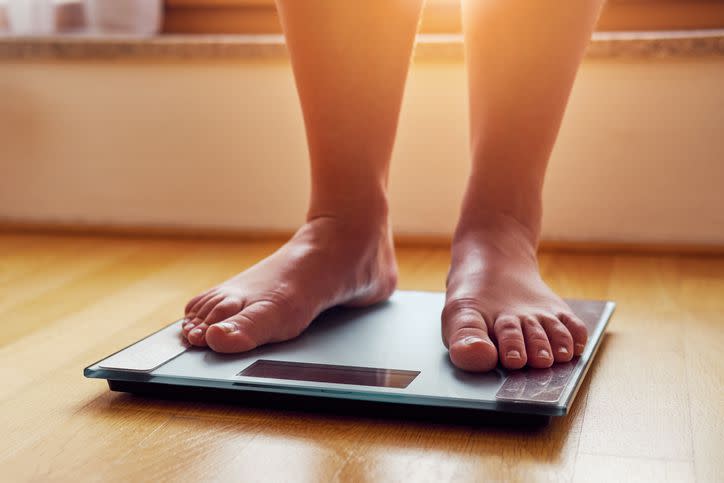
What’s the Best Weight Loss Plan for Men?
There’s no easy way to answer this question. If you’re trying to lose weight, a multimodal approach is recommended.
This would include eating in a way that allows for a calorie deficit (eating roughly 500-750 fewer calories than you burn per day), increasing your physical activity, staying hydrated and getting adequate sleep.
Most importantly, the best weight loss plan for you should be one you can stick with for the long term. Whether or not you choose an “official” diet, weight loss is more likely if you consistently achieve a calorie deficit while incorporating nutrient-dense foods that you actually enjoy.
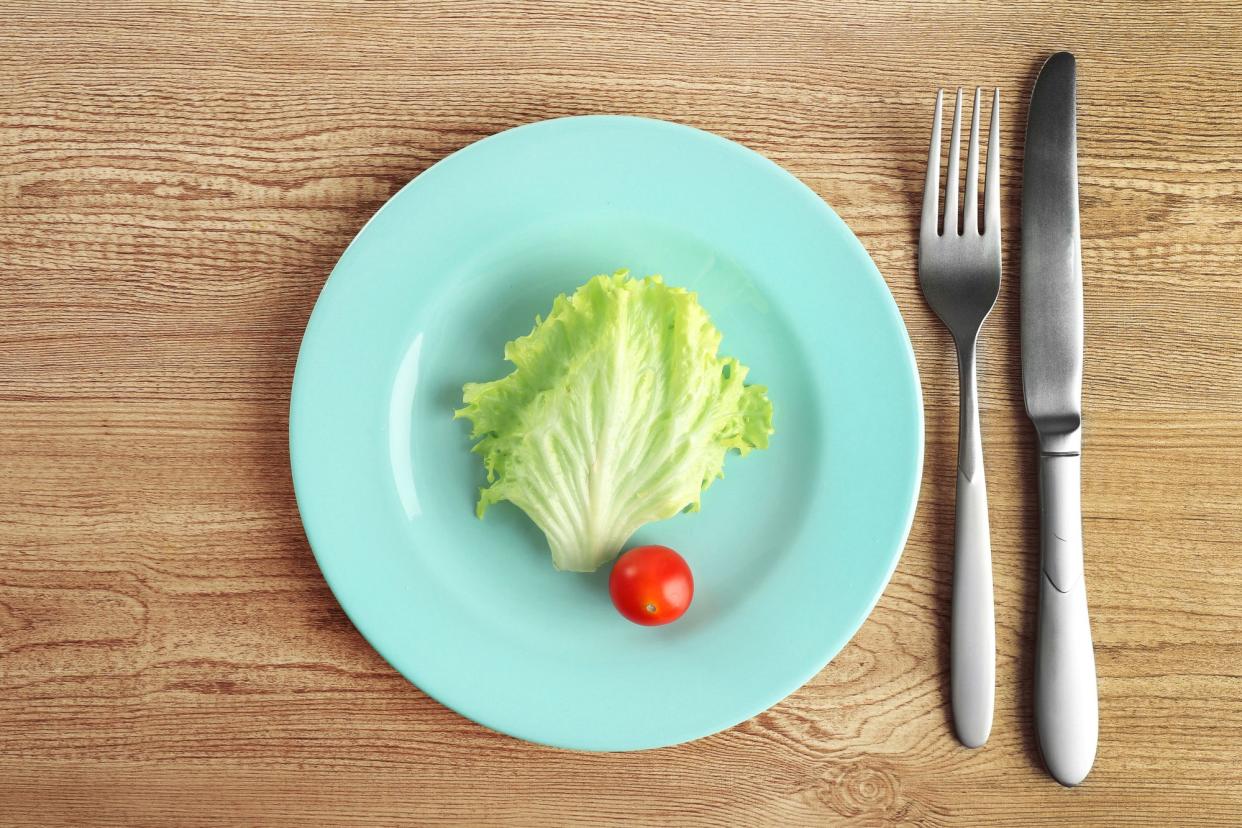
Why Fad Diets Don’t Work
We've all seen fad diet marketing on social media or had someone tell us how their cousin's friend's roommate lost 40 pounds on the latest trendy diet.
While fad diets often cause initial weight loss, it’s always short-term, and you usually won’t get a solid nutritional foundation.
Despite the promise of quick fixes and miraculous results, fad fat loss diets for men fall short in many ways. Rarely do they teach skills about healthful eating nor are they based on sustainable habits.
These types of diets usually advocate extreme restrictions or promote specific food groups while demonizing others. They often result in regaining the lost weight once you return to eating normally (hence the term “yo-yo dieting”).
To spot a fad diet, look for exaggerated claims, overly restrictive rules and the absence of scientific evidence supporting effectiveness.
Some of their advertising may be convincing, but that can never replace a balanced, healthy eating approach focused on whole foods, portion control and exercise.
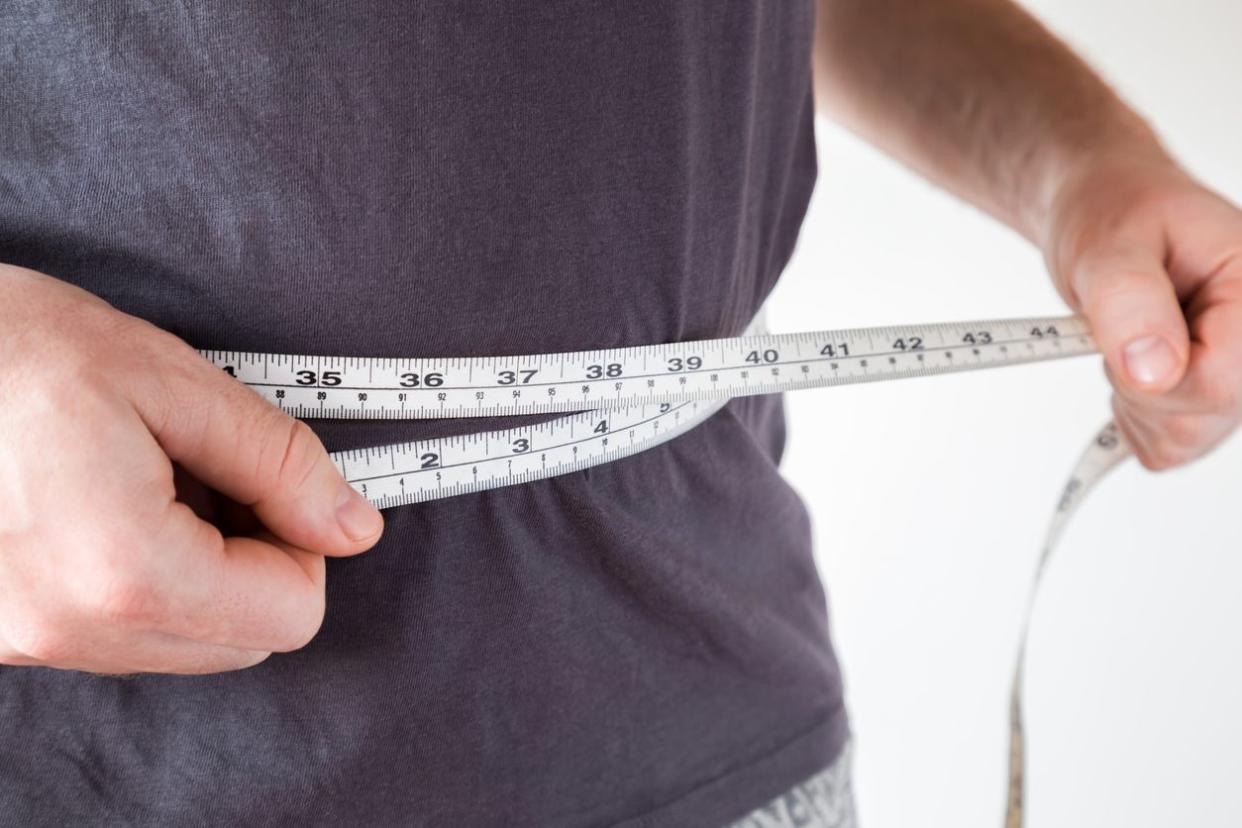
6 Weight Loss Plans: Pros and Cons
There’s no shortage of weight loss programs, which range in effectiveness and evidence. Read on for an outline of six popular ways of eating to promote weight loss, including their pros and cons.
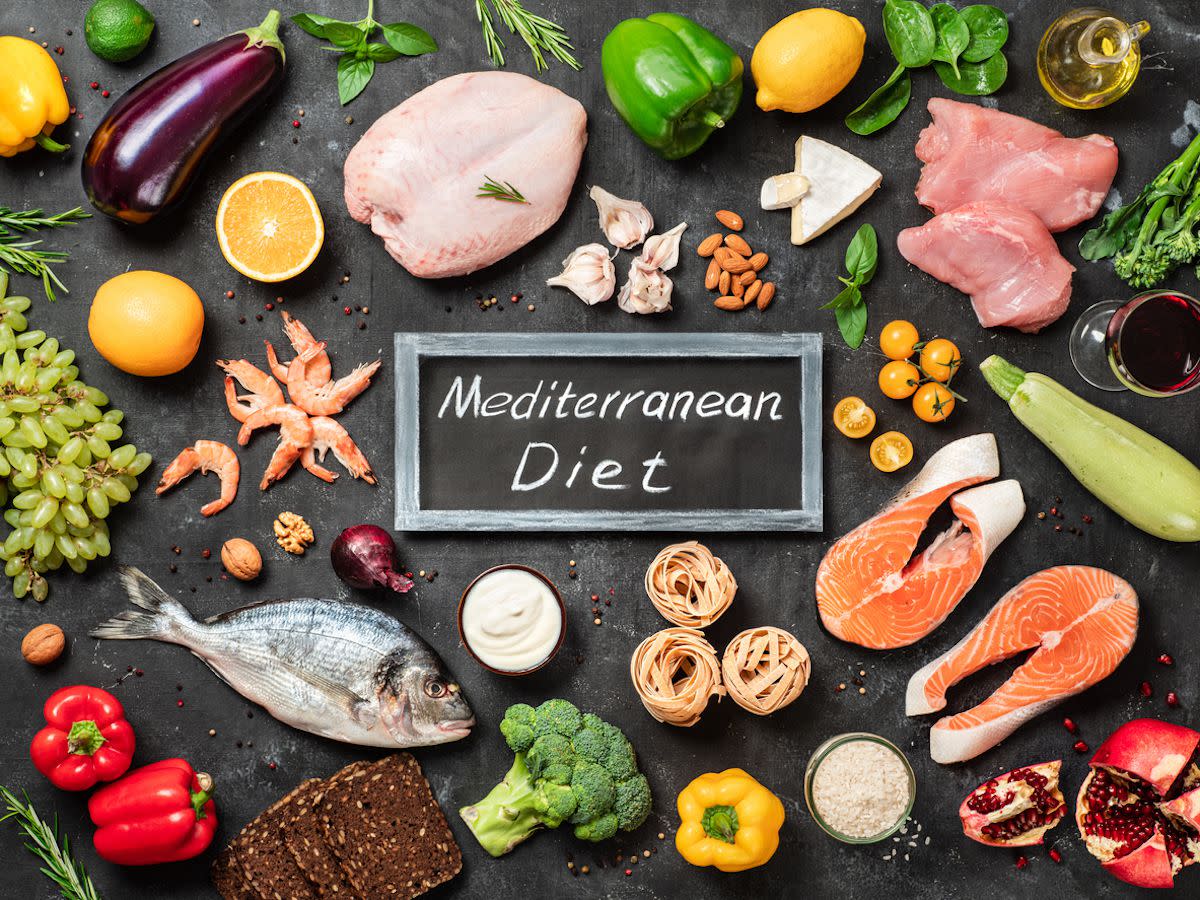
1. The Mediterranean Diet
The Mediterranean diet emphasizes whole, minimally processed foods like fruits, veggies, whole grains, legumes, nuts and olive oil while limiting red meat and saturated fats. It’s a primarily plant-based diet with healthy fats.
Pros:
Nutritional balance: Foods on this diet provide essential nutrients while promoting satiety, making it easier to maintain a caloric deficit for weight loss.
Sustainable: Unlike fad diets, the Mediterranean diet isn’t overly restrictive, making it easier to adopt as a long-term change.
Health benefits: This way of eating is associated with numerous benefits, including a lower risk of health conditions like heart disease.
Flexibility: It can be adapted to your preferences and needs.
Cons:
Potential calorie overconsumption: While the Mediterranean diet emphasizes healthy foods, it's possible to consume excess calories from nuts, olive oil and cheese. Portion control is important in this diet.
Adaptation: If you’re used to eating a lot of processed foods or meat and dairy products, transitioning to the Mediterranean diet may require some trial and error as you figure out your taste preferences and cooking habits.
Potential lack of structure: Unlike some weight loss programs that provide specific meal plans, the Mediterranean diet's flexibility may leave some people unsure what to do.

2. Whole Foods Plant-Based
A whole foods plant-based (WFPB) diet focuses on minimally processed plant foods — like fruits, vegetables, whole grains, legumes, nuts and seeds — while avoiding animal products and ultra-processed foods high in added sugars.
Pros:
Health benefits: A WFPB diet is rich in the numerous vitamins, minerals, fiber and antioxidants found in fruits, vegetables, whole grains, legumes, nuts and seeds. Evidence shows this way of eating can lower the risk of obesity, heart disease, type 2 diabetes and cancers.
Weight management: Plants are high in nutrients and low in calories. Plant-based diets are also lower in saturated fat than diets high in animal products — and cholesterol-free.
Good for the environment: Plants require less water and land and produce fewer greenhouse gas emissions than animal products.
High-fiber focus: Plants are the only source of dietary fiber, a nutrient 95 percent of adults aren’t getting enough of in their diet. Fiber supports digestion and blood sugar regulation and promotes satiety for weight control.
Cons:
Requires certain supplements: A well-planned WFPB diet can provide all essential nutrients, but you may need to pay special attention to certain ones, especially vitamin B12. Other potential nutrients of concern are vitamin D, omega-3 fatty acids and iron, though this depends on the individual.
Social challenges: Plant-based diets are becoming normalized but still can present challenges. Do some prep work, like checking the menu or making your own food, before attending social gatherings or dining out to ensure you can accommodate your needs.
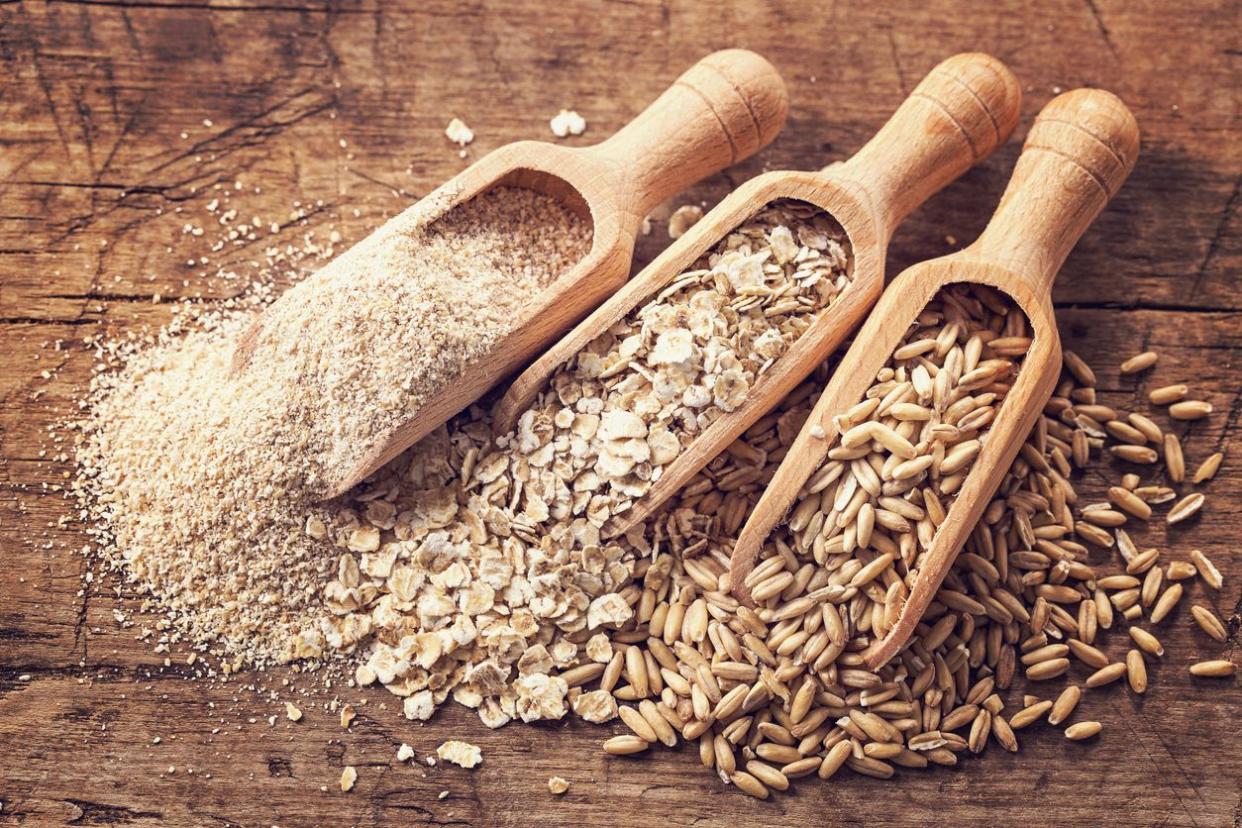
3. The MIND Diet
The MIND diet combines elements of the Mediterranean and DASH diets to promote brain health and reduce the risk of Alzheimer's disease.
It recommends mostly fruits, vegetables, whole grains, nuts, seeds, lentils and olive oil while limiting ultra-processed foods, red meat, butter and fried foods.
Pros:
Emphasis on whole foods: Like the Mediterranean diet, the MIND diet encourages minimally processed, nutrient-dense plant foods and promotes satiety to support weight loss efforts.
Heart healthy: Foods rich in omega-3 fats — like olive oil, nuts and fish — can help reduce the risk of heart disease and high blood pressure while supporting weight management.
Flexibility: It allows for flexibility and doesn’t require daily calorie counting. It emphasizes nutritional quality, which makes it sustainable for weight management.
Brain health benefits: Foods rich in antioxidants and anti-inflammatory nutrients support overall brain function.
Cons:
Limited evidence for weight loss: Its primary focus is on brain health rather than weight management. Still, the diet’s focus on nutrient-dense foods means it can also support weight loss.
No specific structure: The MIND diet offers general recommendations versus a structured eating plan. This may be challenging for people who want a structured weight-loss meal plan.

4. Low Carb Diets
Low-carb diets may restrict carbohydrate intake to less than 20-50 grams per day. This triggers a state of ketosis, which is when your body switches to burning fat for fuel instead of carbs.
Because of this, low-carb diets often emphasize foods high in protein and fat while limiting carbs from grains, starchy vegetables (like sweet potatoes and squash) and sugary foods.
Pros:
Rapid weight loss: Low-carb diets lead to initial weight loss because reducing carbs causes you to shed water weight.
Increased satiety: Foods high in protein and healthy fats can promote fullness, potentially reducing overall calorie intake.
Potentially improved metabolic markers: Some research suggests low-carb diets may improve blood sugar regulation, insulin sensitivity and cholesterol.
Cons:
Sustainability: Low-carb diets are challenging to maintain due to their restrictive nature, which can limit your food choices. Plus, when you start eating normally again, you’re likely to regain the weight you lost.
Reduced nutritional quality: Because they may falsely label all carbs as “bad” foods, low-carb diets also restrict healthy carbs like fruits, vegetables and whole grains.
Potential side effects: Some people report fatigue, constipation, bad breath and brain fog on a low-carb diet, particularly in the beginning.
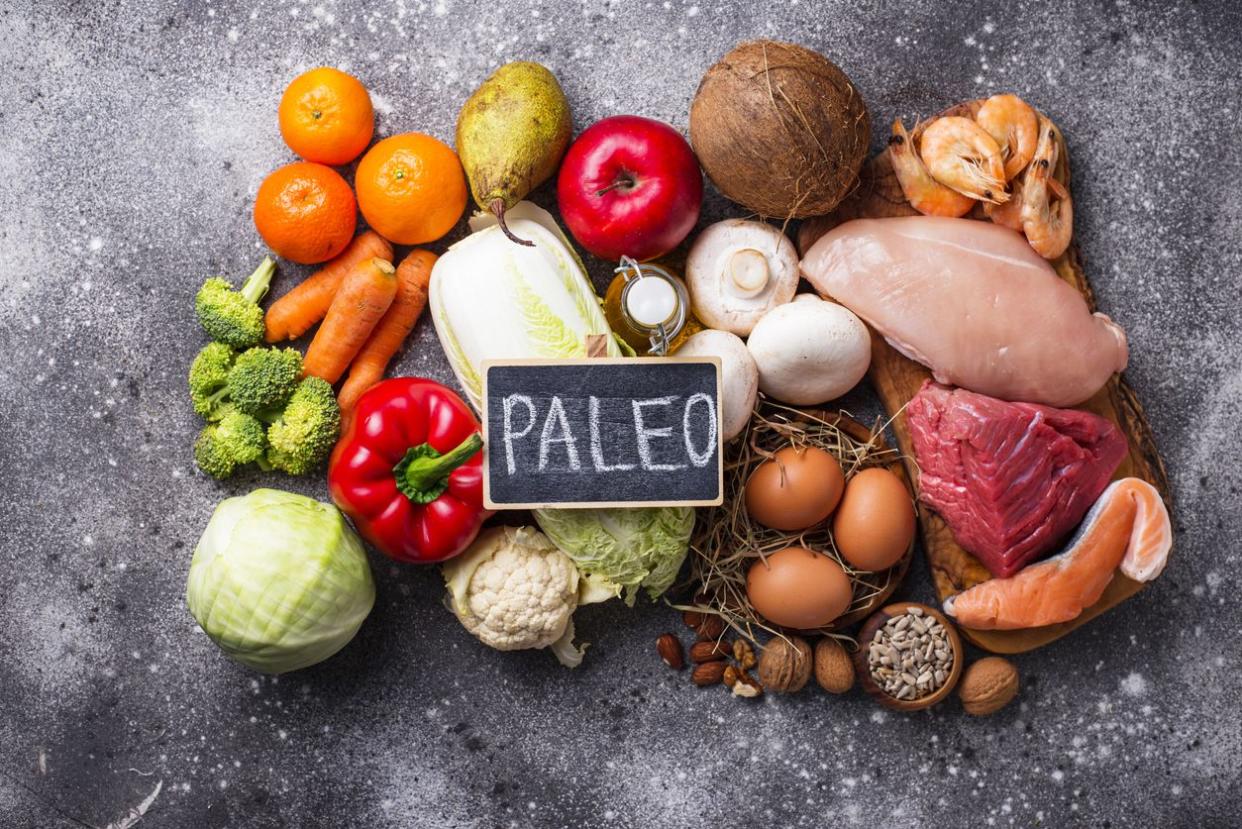
5. Paleo
The paleo diet (AKA “the caveman diet”) advocates eating foods available during the Paleolithic era, like high-protein lean meats, fish, fruits, vegetables, nuts and seeds, while avoiding ultra-processed foods, grains, dairy and legumes.
Pros:
Emphasis on whole foods: The paleo diet encourages whole, unprocessed foods that are typically nutrient-dense and can help promote satiety.
Reduction in ultra-processed foods: By eliminating these types of foods, you automatically reduce your intake of empty calories that promote weight gain.
Cons:
Restrictive: The restriction of grains, dairy and legumes may lead to nutrient deficiencies if not well-planned.
Not great for heart health: The paleo diet isn’t low-fat — it typically incorporates a lot of animal products, which are high in saturated fat and cholesterol. Consuming these in excess can increase your risk of heart disease and hinder weight loss efforts.

6. Intermittent Fasting
Intermittent fasting (IF) involves cycling between periods of eating and fasting. For example, the 16:8 method allows an eight-hour eating window and a 16-hour fasting window. This approach to eating doesn’t specifically dictate what you eat but focuses on when you eat.
Pros:
Caloric restriction: By limiting the window of time in which you’re eating, IF can reduce overall calorie intake and lead to weight loss.
Potential metabolic benefits: IF may help improve insulin sensitivity and regulate blood sugar and hormone levels. This can all benefit overall health and weight management.
Simplified eating patterns: The simplicity of IF may help make meal planning and structure easier if you’re trying to stick to a calorie-reduced diet.
Cons:
Potential for overeating: Some people may compensate for fasting periods by overeating during the eating window, nullifying any calorie deficit.
Hunger: Extended periods of fasting may lead to hunger, discomfort and fatigue. This can be challenging, especially if you lead an active lifestyle, are sensitive to low blood sugar or are used to snacking around the clock.
Potential for reduced nutrition: Because IF focuses on when to eat and not what to eat, this leaves a lot of room for interpretation. The best way to achieve healthy and sustainable weight loss with IF is to prioritize nutritious foods during eating windows.
Possibly dangerous: In a recent analysis of over 20,000 adults, preliminary research has found that those with an eating window of fewer than eight hours per day were 91 percent more likely to die from heart disease than people following a 12 to 16-hour eating window.
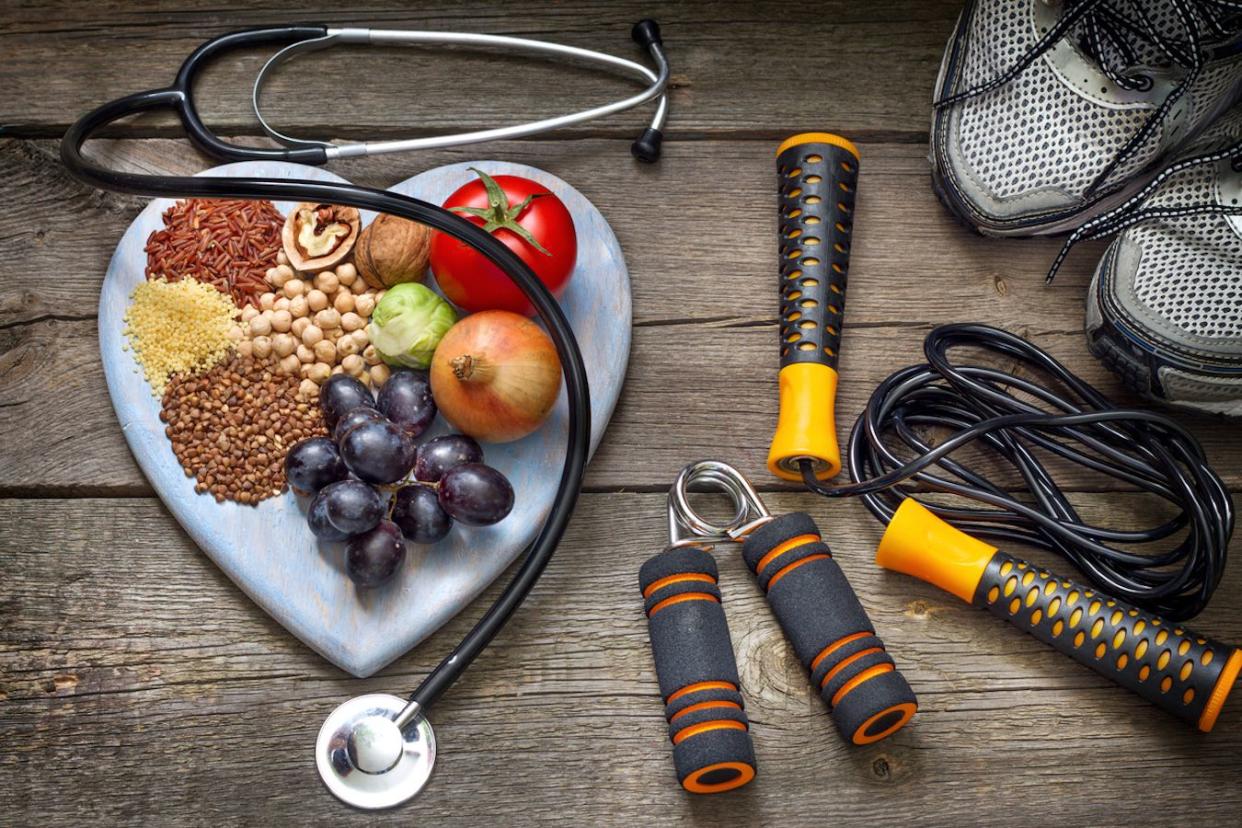
What the Best Weight Loss Diets for Men Have in Common
The best weight loss diets for men have a few main things in common. Here’s what to look for when weighing your options.

They Focus on Long-term Sustainability
There are plenty of diets that can help you lose weight quickly, but you’ll usually regain the weight when you finally get tired of trying to stick to their outlandish rules.
Healthy weight loss diets should encourage gradual but consistent weight loss (typically one or two pounds per week), teach useful nutrition skills and offer additional benefits like reducing chronic disease risk.
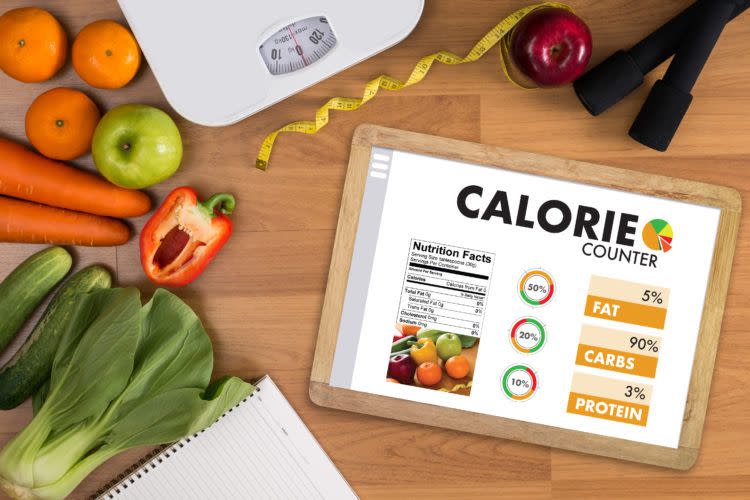
They Emphasize Nutrient Density Versus Calories
Good nutrition is essential for healthy weight management and well-being. Counting calories may be temporarily helpful in certain situations for certain people, but overall, it’s not a requirement to achieve and maintain a healthy weight.
Portion sizes and nutritional quality of what you eat matter far more than obsessing over the calories it contributes. A naturally high-nutrient, low-calorie diet can help you achieve a calorie deficit, especially when paired with exercise.

They Allow for Variety and Flexibility
The dietary pattern you choose to adhere to should still allow for humanness. There should be room to adjust your food choices based on your lifestyle and personal preferences without making you feel like you’ve failed the program.

Other Factors to Support Weight Loss in Men
Your eating habits aren’t the only thing that matters for weight loss. Research suggests that what matters most isn’t the diet pattern you choose to lose weight but how you maintain said weight loss.
We know that men are good at compartmentalizing their lives, but when it comes to achieving a healthy weight, take note of these other habits that work toward the same goal.

More Movement
Staying active boosts energy expenditure, which helps keep you in a calorie deficit for weight loss. It also helps you build lean muscle, which boosts your body fat burning even at rest. Plus, exercise supports heart health and mood and provides a sense of accomplishment.
What’s a good activity level for weight loss? Aim for at least 150 minutes of moderate-intensity or 75 minutes of vigorous-intensity aerobic exercise (running, biking, dancing, swimming or martial arts) weekly and resistance training (weight machines, dumbbells, resistance bands or bodyweight exercises) at least twice a week. However, more is better for promoting weight loss.

Better Sleep
Getting enough sleep is necessary for regulating hunger hormones like leptin and ghrelin, which control appetite and satiety. Being rested also helps you wake up with more energy and a positive mood — which will help you get your workout in and stick to your goals.
Experts recommend seven to nine hours of sleep per night for adults. If you're consistently not getting enough sleep, you may be at risk of experiencing the health risks associated with sleep debt.

Hydration
Staying hydrated helps keep you fuller between meals and reduces the odds of mistaking thirst for hunger. It also supports healthy metabolic function so your body can efficiently burn calories.
Keep a reusable water bottle with you to sip throughout the day.

Stress Management
When you’re stressed, your body releases cortisol (AKA “the stress hormone”). While cortisol is important in the short term, it can promote inflammation, increased appetite and fat storage over time.
Meditation, exercise and sharing concerns with others can help keep excess stress in check.

Weight Loss Medications
Sometimes, healthy lifestyle habits aren’t enough to promote sustainable weight loss on their own.
Weight loss medications support weight loss by promoting satiety, reducing the absorption of certain nutrients or boosting your metabolism (the rate at which you burn calories).
Some of the most popular and effective weight loss medications include:
Topiramate: This option promotes weight loss by affecting brain chemicals like gamma-aminobutyric acid (GABA), leading to feelings of fullness and reduced food intake.
Metformin: This is used for type 2 diabetes management but can also support weight loss by improving insulin sensitivity, reducing blood sugar and decreasing appetite.
Contrave: This is a combination of two medications: bupropion (an antidepressant that also helps people stop smoking), which acts on your brain's appetite control center to reduce food cravings, and naltrexone (a drug used to treat opioid and alcohol use disorders), which targets your brain’s reward system to reduce food cravings and prevent overeating.
Glucagon-like peptide-1 receptor agonists: Also called GLP-1s, these medications mimic the hormone GLP-1. They increase feelings of fullness, reduce appetite and slow digestion. Examples include semaglutide (Ozempic) and liraglutide (Saxenda).

Best Diet for Men to Lose Weight: The Takeaway
With all the diet plans for men, it can feel overwhelming to choose one. Keep these simple tips in mind when considering the right option, and consult a registered dietitian for personalized guidance.
They should stand the test of time. A quick fix is never the answer when looking for sustainable, long-term results that support your overall health. Changes you make to your eating pattern should be changes you can feel good — and not restricted or shamed — about for the long haul.
They should take into account individualism. If everyone followed the same exact diet plan, we’d still see different results. Weight loss is a personal journey, and diet plans should reflect that. Flexibility should be allowed when creating a healthy meal pattern, which will help you better adhere to it.
They are one piece of the larger puzzle. Weight loss is multifaceted. Nutrition is key, but it should be combined with other healthy habits like stress management, exercise, better sleep and hydration. Some people even find weight loss medications a helpful component.
There may not be a single weight loss plan for men, but there’s a best weight loss plan for you — which depends on your personal needs and preferences, not on anyone else’s.
This article originally appeared on Hims.com and was syndicated by MediaFeed.org.
